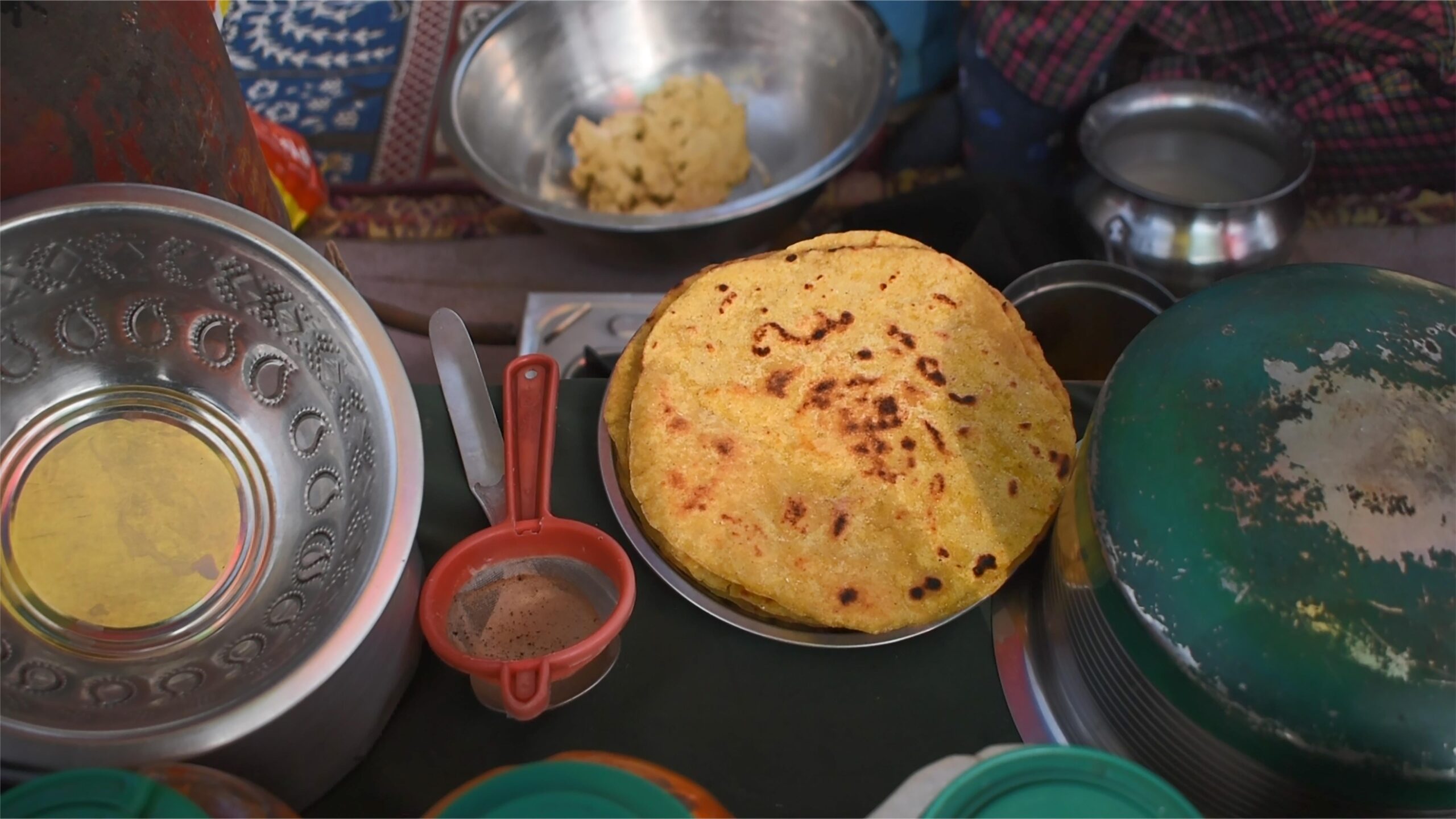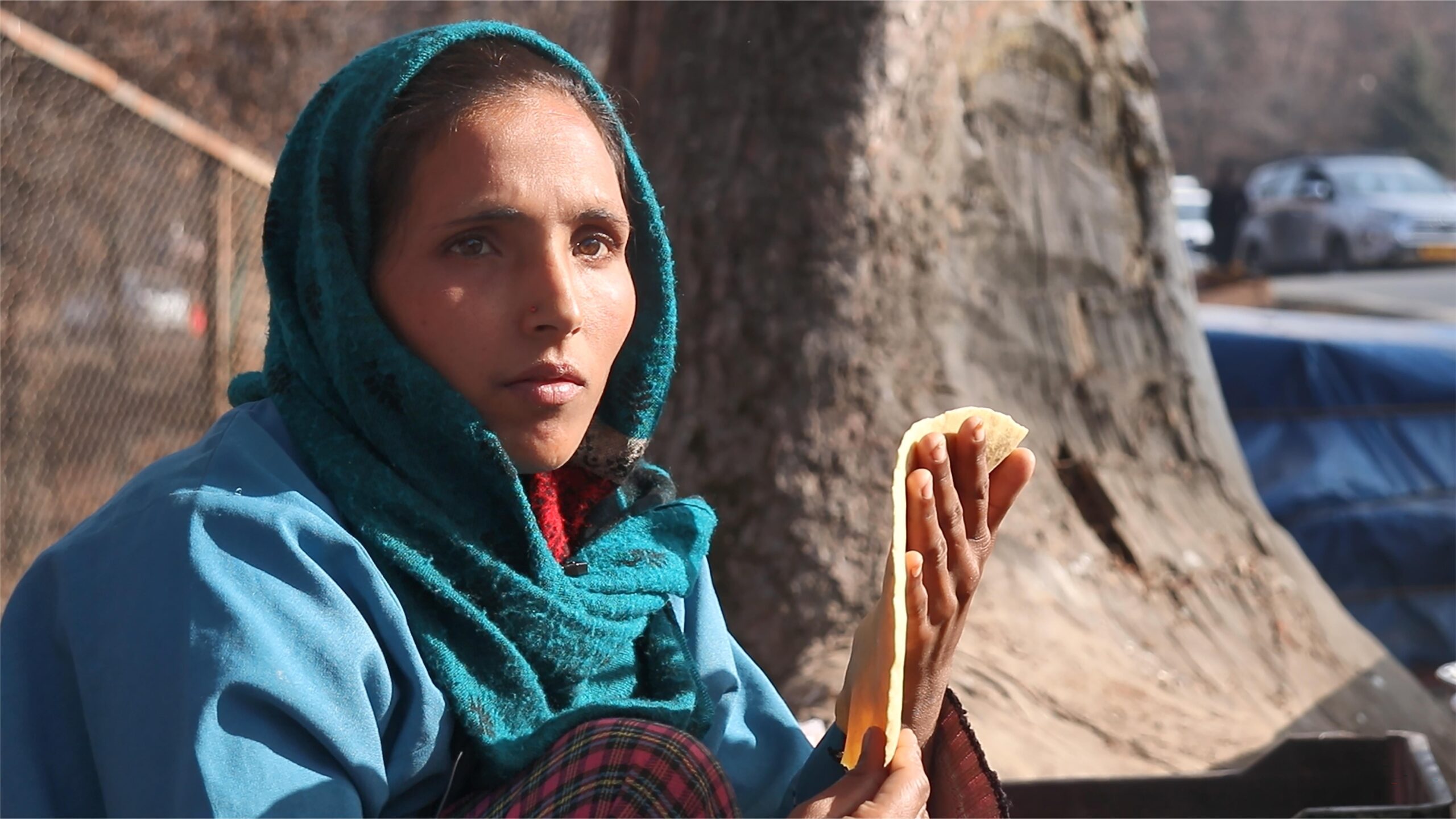Empowering Taste and Women Entrepreneurs: Doodhpathri’s Culinary Queens in J&K Redefine Tradition

Mehar Zargar, TwoCircles.net
Srinagar: Amidst the picturesque scenery of Doodhpathri in Jammu Kashmir’s Budgam district, where lush meadows meet flowing streams, a remarkable story unfolds. Here, dozens of women entrepreneurs run stalls, serving up not just delicious food but also breaking barriers and setting examples. One such entrepreneur, Afroza Bano, juggles kneading dough, cooking rotis and serving customers — all while her family pitches in, showcasing a harmonious blend of work and home life.
At these stalls, patrons find more than just tea and cornbread; they discover a warm, inviting atmosphere reminiscent of home. This microcosm of entrepreneurship offers a refreshing change, with over 40 women leading the charge, supported wholeheartedly by their families. It is a departure from the norm, where usually only men run such stalls.
Afroza’s stall, like many others, offers a diverse menu of traditional Kashmiri delights, prepared with love and care. Her freshly made maize chapatis are a specialty, drawing both locals and tourists alike. It is not just about the food, it is about the experience — a taste of Kashmiri hospitality in every bite.
[caption id="attachment_449948" align="aligncenter" width="2560"] Ulfat Bano offering tea, bread, and a variety of food to her customers at her stall at the entrance of Doodhpathri. Photo: Amir Bin Rafi[/caption]
Ulfat Bano offering tea, bread, and a variety of food to her customers at her stall at the entrance of Doodhpathri. Photo: Amir Bin Rafi[/caption]
In a region where male dominance often prevails in such endeavors, these women stood out, managing both their businesses and households with aplomb. Over 40 women, not just one or two, manage stalls here, setting an inspiring example for others. Their innovative spirit and determination were evident, challenging traditional gender norms and paving the way for a more inclusive future.
“For the past two years, we have curated a diverse menu at our stalls situated along Doodhpathri Road (nestled between the tourism office and the viewpoint area). Our offerings encompass an array of traditional Kashmiri delicacies, including ‘noon chai’, ‘chapati’, maggie, ‘saag’ and ‘makki di roti’. Personally, my expertise lies in crafting freshly baked maize chapatis on-site (a warm and inviting treat for both tourists and locals alike). Should anyone crave the authentic flavors of Kashmiri cuisine, we are delighted to cater to their tastes,” Afroza shared warmly.
This grassroots initiative provides valuable insights into enhancing women’s involvement in the country’s workforce. According to the Periodic Labour Force Survey Report 2022-23 published by the Ministry of Statistics and Programme Implementation on October 9, 2023, the female labour force participation rate in the nation witnessed a significant rise of 4.2 percentage, reaching 37.0% in 2023, as measured by the “usual status” concept of labour force participation.
[caption id="attachment_449949" align="aligncenter" width="2560"] Ulfat Bano making cornbread (makki di roti) for customers at Doodhpathri's entrance. Photo: Amir Bin Rafi[/caption]
Ulfat Bano making cornbread (makki di roti) for customers at Doodhpathri's entrance. Photo: Amir Bin Rafi[/caption]
Mushtaq, Afroza’s husband, said, “We usually work together, but on weekends, our children lend a hand. The opening of Doodhpathri during winters has enabled us to sustain our livelihood, which was otherwise challenging during winters.”
On October 27, 2022, the Jammu & Kashmir administration made the decision to broaden the valley’s winter tourism beyond the renowned skiing destination of North Kashmir’s Gulmarg to encompass other areas in the valley, including the popular tourist destination of Doodhpathri.
What is noteworthy is the eco-friendly approach adopted by the stall's owners. They minimise waste by serving freshly made food on reusable plates, avoiding the sale of packaged items to reduce plastic waste, sourcing ingredients primarily from their own farms and responsibly disposing of waste tea leaves by either composting them or using them as fertilizer in their fields.
Afroza elaborated, “A few years ago, we experimented with selling Lays packets here, but soon realized the accumulation of plastic bags. After discussing with fellow stall owners, we made a collective decision to refrain from selling anything harmful to the environment.”
Many of the women managing these food stalls hail from farming backgrounds as they cultivate corn.
Ulfat from Rayar, another stall owner, claimed, “I have been operating this stall for four years now. Previously, my husband used to sell corn and packaged tortillas here, but the earnings were minimal. Then, a tourist suggested to him to offer tea. That is when the idea struck us. Given our experience in maize cultivation, we opted to craft our own cornbread instead of relying on commercially packaged ones, thereby reducing production costs. Over time, we diversified our menu to include tea, kehwa (coffee) and other offerings, inspired by Gulshan who pioneered the stall system in Doodhpathri.”
“We utilize flour from the traditional watermills in the Arizal area before it reaches Doodhpathri. My husband procures the freshly ground flour, and I use it to bake fresh bread for our customers. With approximately 50 stalls in the vicinity, nearly 40 of them are managed by women,” she stated.
The objective behind these stalls was to establish a self-sustaining business model. And their dedication does not go unnoticed. Tourists like Vinay and Amit appreciate not just the food but also the commitment to promoting sustainable tourism.
A tourist from Delhi and a software developer by profession, Vinay embarked on a ski tour to uncover the lesser-known routes and tales of Kashmir. Encountering the serving of Kashmiri ‘noon chai’ by local women, he decided to indulge in the experience. He commended the concept of food stalls as a means to promote sustainable tourism in the region.
[caption id="attachment_449950" align="aligncenter" width="1080"] Arizal area of Budgam where watermills grind wheat into flour, which is used by local female vendors at their stalls. Photo: Amir Bin Rafi[/caption]
Arizal area of Budgam where watermills grind wheat into flour, which is used by local female vendors at their stalls. Photo: Amir Bin Rafi[/caption]
“All the food stalls here are established without official permission, yet due to our offering of homemade items and the promotion of local culture without environmental harm, authorities have refrained from taking action against us,” mentioned Ulfat.
Amit, a tourist from Mumbai, expressed, “Dining amidst the lush greenery enhanced the flavors of the food.” He elaborated, “After seeing these food stalls on YouTube, I was eager to savor local cuisine upon visiting Kashmir. I ordered ‘Makai Chot’, ‘Saag’ and Kashmiri pickles.”
He appreciated the warm reception and hospitality extended by the vendors. “The main challenge I encountered was the weak cell phone signal in the area, which hindered online transactions," he remarked.
(Mehar Zargar is a freelance journalist. She reports stories of resilience and innovation that inspire change)
